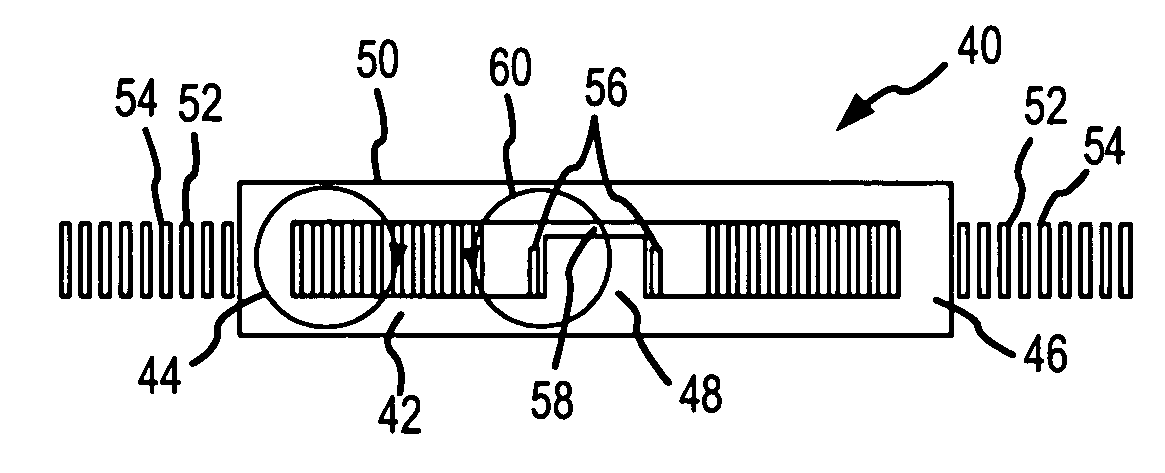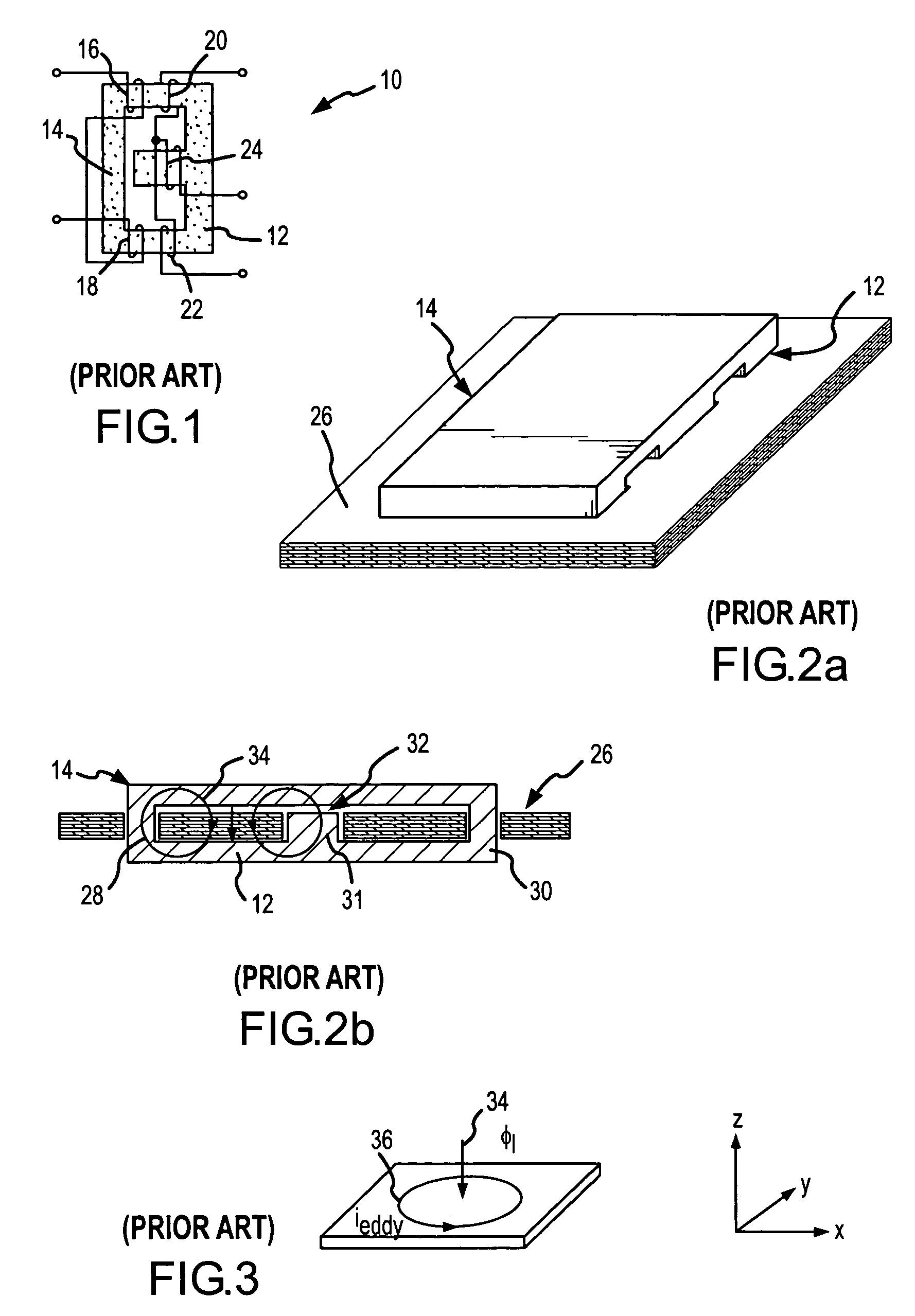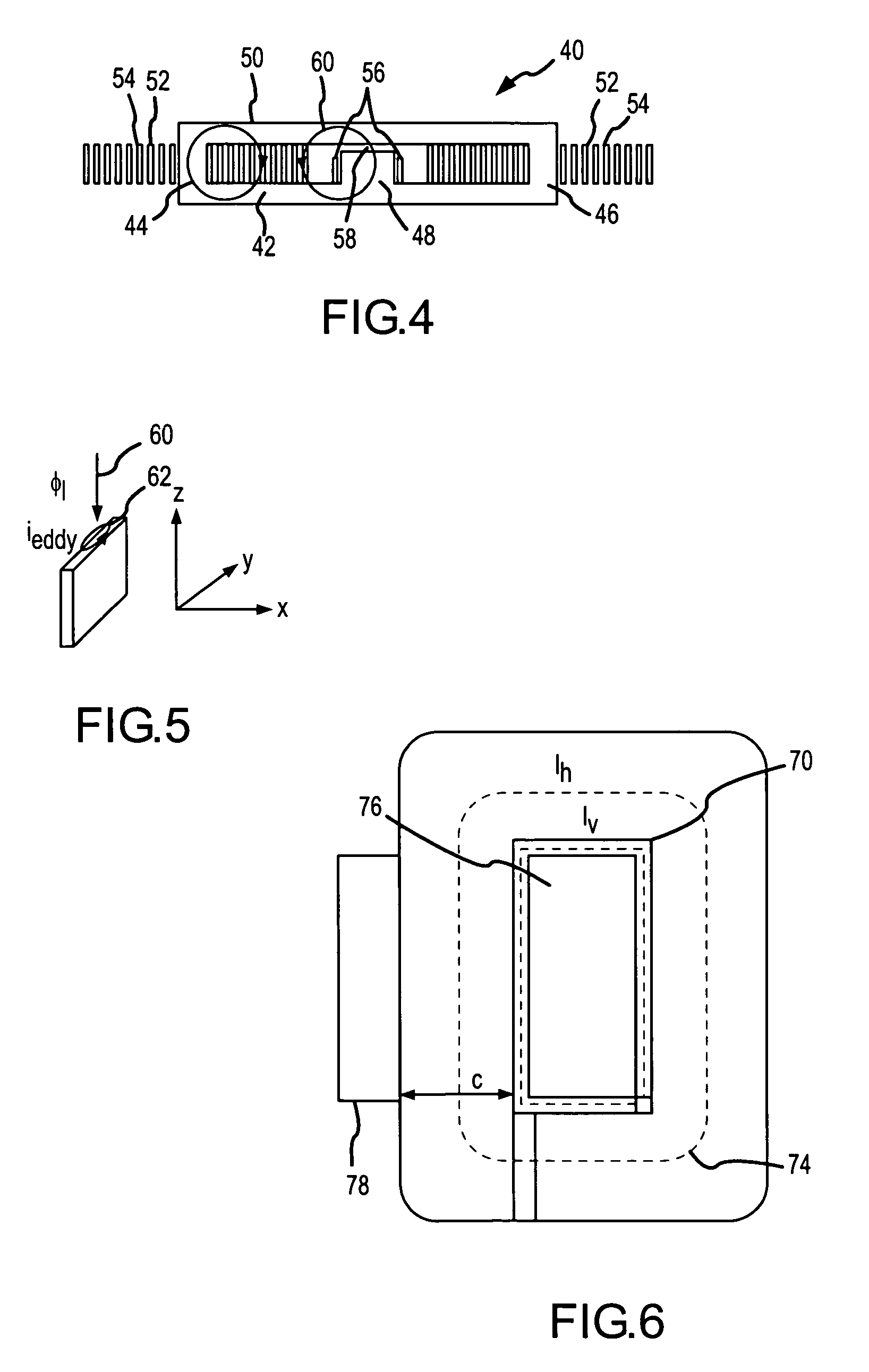Vertical winding structures for planar magnetic switched-mode power converters
- Summary
- Abstract
- Description
- Claims
- Application Information
AI Technical Summary
Benefits of technology
Problems solved by technology
Method used
Image
Examples
Embodiment Construction
[0024] The present invention provides a “vertical” winding structure for planar magnetics used in switched-mode power converters that maintains close coupling between the different windings but reduces the eddy current losses, lowers the winding resistance, reduces the number of layers of the PCB, and in certain configurations reduces the capacitive coupling between the outer-leg windings and the center-leg windings, if one exists, of a magnetic core. This winding structure can be used in a wide range of magnetic structures including isolated and non-isolated CDRs, interleaved CDRs, and buck and boost converters. To maintain continuity, the vertical winding structure will be described in conjunction with a conventional E-I core for an isolated CDR.
[0025] As shown in FIG. 4, the magnetic structure 40 for use with an isolated CDR includes an E-I core 42 having outer legs 44 and 46 and a center leg 48 and a plate 50. The split-primary and secondary windings are formed by interleaving ...
PUM
 Login to View More
Login to View More Abstract
Description
Claims
Application Information
 Login to View More
Login to View More - R&D
- Intellectual Property
- Life Sciences
- Materials
- Tech Scout
- Unparalleled Data Quality
- Higher Quality Content
- 60% Fewer Hallucinations
Browse by: Latest US Patents, China's latest patents, Technical Efficacy Thesaurus, Application Domain, Technology Topic, Popular Technical Reports.
© 2025 PatSnap. All rights reserved.Legal|Privacy policy|Modern Slavery Act Transparency Statement|Sitemap|About US| Contact US: help@patsnap.com



